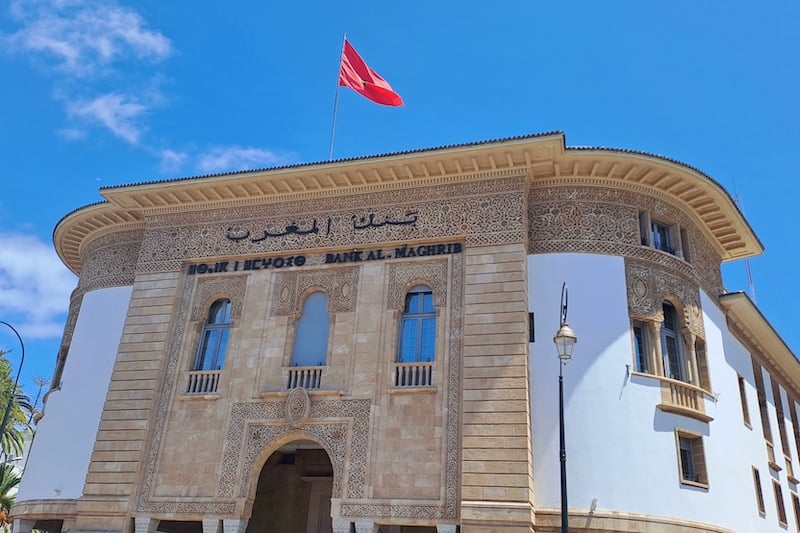This expansion has provided Morocco with significant economic benefits, particularly through remittances from Moroccans living abroad, which are a key source of foreign currency.
However, this growth has not come without its challenges, especially following political and regulatory changes within the European Union.
The announcement of the United Kingdom’s departure from the EU has expedited a reassessment of cross-border money transfer practices by foreign banks, including Moroccan banks operating in Europe.
The EU is currently moving to restrict net financial transfers from foreign banks to their home countries, a trend that is expected to negatively impact the profitability of Moroccan banks and, by extension, the national economy.
The European Union is set to implement a new directive that requires foreign banks operating in Europe to establish local branches subject to European regulations in order to continue their cross-border activities.
According to Articles 37 and 41 of the Moroccan Commercial Code, any foreign entity wishing to conduct business in Morocco must register with the relevant authorities and comply with local standards.
While this requirement is common in local frameworks, it imposes significant costs on Moroccan banks operating in Europe, adding to the competitive and regulatory challenges they will face in the future.
Currently, Moroccan banks operating in Europe are primarily governed by the national laws of the countries in which they operate, with some obligations related to disclosure.
Through the unification of rules for all foreign banks, the EU aims to increase its control over financial flows and ensure that these banks contribute to local economic value.
If the new directive is adopted, Moroccan banks will need to make structural adjustments, leading to high costs that could force some banks to scale back or even withdraw from less profitable European markets, which would, in turn, reduce the volume of remittances sent to Morocco.
Omar Zouiden, a financial engineering and banking transactions expert, explained in an interview with Hespress that the EU directive could “weaken the profitability of Moroccan banks in Europe by increasing operational costs and reducing their flexibility in managing financial resources.”
He noted that “compliance with the requirement to establish approved local branches would represent a significant financial investment, which may prompt some banks to withdraw from less profitable European markets.”
Zouiden added that diplomatic negotiations, particularly through the Ministry of Foreign Affairs and the Central Bank of Morocco (Bank Al-Maghrib), could help mitigate the potential effects of the new EU directive. These negotiations could seek exemptions or grace periods for Moroccan banks, allowing them to adapt to the new requirements without facing significant economic disruption.
He also pointed out that Morocco’s Commercial Code, adopted in 1996, already imposes similar registration and transparency requirements on foreign companies operating in the country, paralleling the measures the EU intends to enforce.
He revealed that negotiations between Moroccan authorities, the relevant banks, and the European Union have been underway since October, with discussions set to continue into the fourth quarter of the year.
This provides the Moroccan side an opportunity to seek further clarification on the new regulatory provisions and their potential implications, while also warning of potential misinterpretations when the EU directive is transposed into local laws, including Moroccan law. Such discrepancies could complicate practical implementation and increase the risk of political exploitation of these measures.
Threat to Remittance Flows
The EU directive, prepared by the European Commission’s Directorate-General for Financial Stability, Financial Services, and the Capital Markets Union, and adopted by the European Parliament, primarily focuses on restricting the activities of UK banks after Brexit.
However, due to its broad scope, which includes all foreign banks in the EU, the directive directly affects Moroccan banks with branches and representative offices in seven European countries.
Abdelrafi Essahmadi, a banking consultant, noted that while these new restrictions pose a challenge, they also present an opportunity for Moroccan banks to diversify their transfer methods and strengthen their ability to adapt to regulatory pressures.
He explained that “the tightening of regulations may push some remittance flows from Moroccans living abroad to non-bank solutions, such as specialized money transfer institutions.” These institutions are more flexible and less costly when it comes to compliance, potentially offering a competitive alternative to ensure the continuation of remittances to Morocco.
Essahmadisuggested that Moroccan banks consider collaborating with money transfer institutions to reduce transaction costs, emphasizing that remittances from Moroccans abroad have reached record levels, surpassing 100 billion dirhams annually.
These remittances now account for 8% of Morocco’s GDP and help finance nearly one-third of the country’s trade deficit. In addition, they are critical for maintaining foreign currency reserves, contributing to the stability of Morocco’s balance of payments.
The banking consultant also highlighted the Moroccan authorities’ efforts to safeguard remittance flows in the face of the EU directive. The government has engaged in close negotiations with the European side to ensure that these financial transfers continue smoothly.
Bank Al-Maghrib’s governor, Abdelatif Jouahri, confirmed these ongoing negotiations, which involve the European Commission, financial regulators, and key European countries, including France, Spain, Italy, Belgium, and the Netherlands. These discussions are being led by the central bank, in coordination with the Ministries of Foreign Affairs and Economy.
The post New European banking regulation threatens flow of remittances from Moroccan diaspora appeared first on HESPRESS English – Morocco News.





 No products in the cart.
No products in the cart.